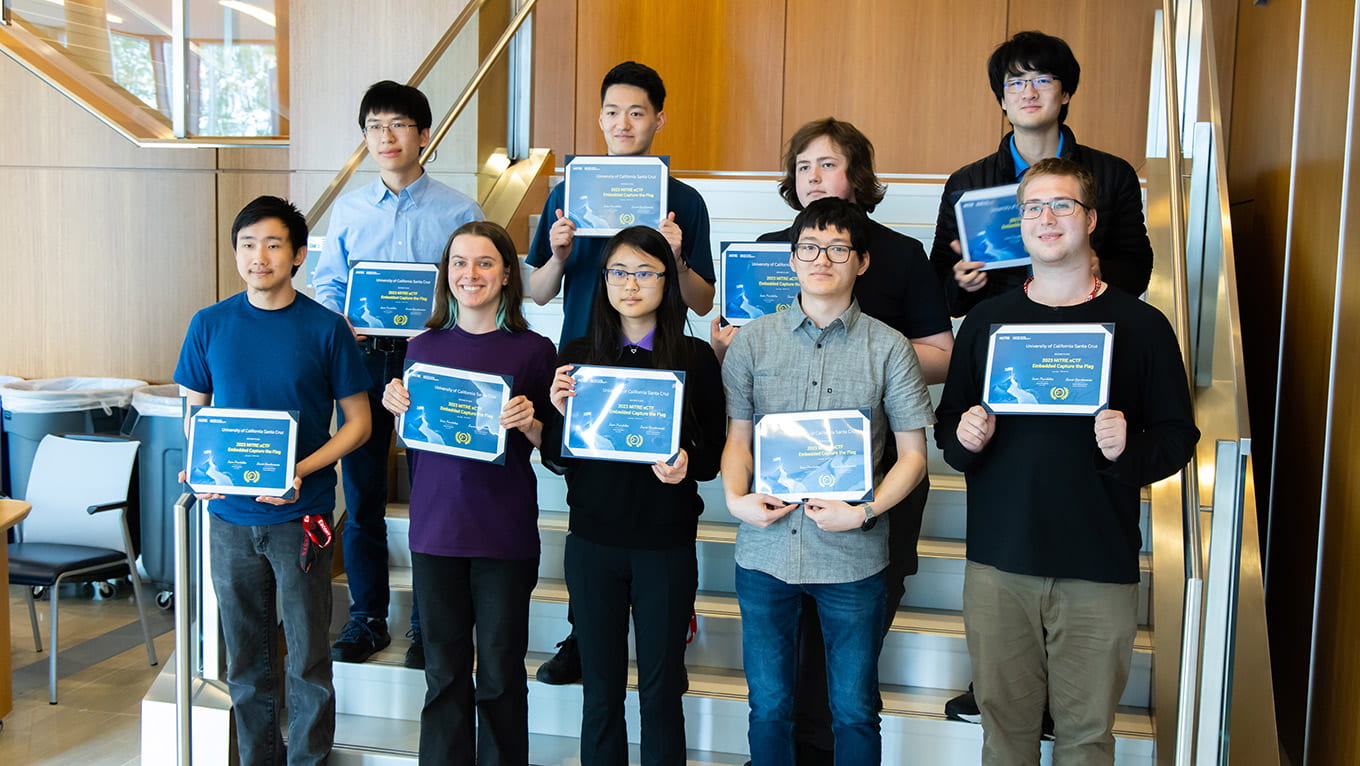A team of 10 Baskin School of Engineering students, who are a part of the UCSC Slug Security Club, placed second out of 80 teams in the MITRE Embedded Capture the Flag (eCTF) Competition, a unique two-part cybersecurity challenge that involves participants designing a secure embedded system and then analyzing and attacking the designs of competitors to earn points. This was the first time UC Santa Cruz competed in the competition.
This year’s competition, which ran from January to April, tasked teams to design and implement a secure key fob system for a vehicle door lock capable of preventing unauthorized entry and attacks by malicious actors.
“I really enjoyed the design phase of the competition,” said UCSC team member Brian Mak. “I thought it was a good way to express creativity in a way that typical classroom assignments do not allow for.”
After the student teams designed their systems, they transitioned to the “attack” phase of the competition, where they spent time analyzing their competitors’ designs in hopes of locating security flaws to gain entry into their systems. Different from most cybersecurity challenges, the teams’ systems were built to be as secure as possible and not have vulnerabilities by design, making it more representative of the kind of challenges students would face in industry.
For every successful attack, teams were awarded flags, which then translated to a point system to determine overall winners. UCSC and Carnegie Mellon University, the first place winner, were the only two teams whose systems were not compromised during the competition.
Throughout the three-month-long challenge, students gain and apply a variety of soft and hard skills, including critical thinking, problem solving, digital forensics, reverse engineering, and programming. The challenge seeks to prepare the next-generation of cybersecurity professionals.
“Having team members from different major programs, like computer science, computer engineering, and mathematics, diversified our skillset and was crucial in fulfilling functional and security requirements in our design, ultimately leading to our success,” Mak said.
Advised by Associate Professor of Computer Science and Engineering Alvaro Cardenas, Team UCSC included students Brian Mak, Steven Mak, Jeffrey Zhang, Victor Ho, Jackson Kohls, Nancy Lau, Iakov Taranenko, Stephen Lu, Chiara Knicker, and Eya Badal Abdisho.
The team’s second place finish follows several successes in recent cybersecurity competitions, including placing third out of 445 universities at the 2022 National Security Agency (NSA) Codebreaker Challenge and securing 9th place out of 170 teams in the 2022 CyberForce Competition.
UCSC students interested in cybersecurity are encouraged to join the student-run Slug Security Club on campus, which meets every Monday from 2 to 4 p.m. in Engineering 2, Room 506. Club members frequently host workshops and compete in national cybersecurity competitions. Visit the club’s website for more information.




